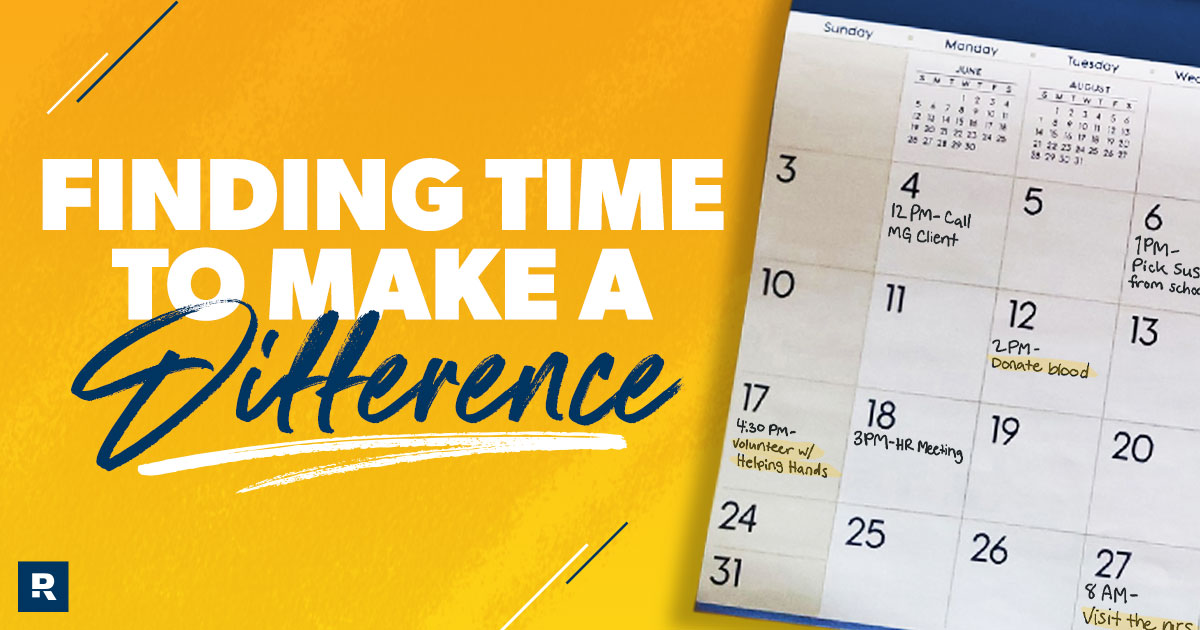4 Ways to Find Time to Make a Difference
3 Min Read | Mar 8, 2022

We’ve all said it to ourselves at least once. When a service opportunity arises, we think, I’m only one person. How much can I really do?
We may be able to brighten a day, fill a belly, or cheer a child, but we think our difference-making ends there.
Guess what? That’s just not true! Every single one of us has the time and ability to make a lasting difference.
People nationwide make a difference every single day when they say yes to coordinating a Financial Peace University class. So how can you up your own time and ability to bring hope to families near you?
1. Look and Listen for Needs Around You
Most of us get so wrapped up in our own lives that we sometimes forget to notice needs around us. You’re not going to change old habits overnight, but start training yourself to be aware of opportunities to serve others. It could be as simple as paying attention to your church’s prayer request list that you’ve ignored in the past.
2. Limit Online, Tech and TV Time
According to a 2011 report by comScore, the average American spent more than 35 hours per month online in 2010. And a 2013 study by eMarketer reported that Americans are spending a whopping 23 hours per week emailing, texting, using social media and engaging in other tech communication. That’s all in addition to the nearly three hours of TV we watch per week, on average, according to the Bureau of Labor Statistics American Time Use Survey.
That’s crazy! And we’re probably all guilty of it to some degree. So it might do us all some good to put down our devices and turn off the tube for a little while each day to get back in touch with the real world around us.
3. Consider It Ministry Time
If you’ve felt called to serve your community but haven’t found the right opportunity, consider this the tap on the shoulder you’ve been waiting for. Not only is it meeting a huge need locally, but it allows you to answer a call to serve that you may be hoping to fulfill anyway. You can volunteer on your own schedule and provide hope to local families. There’ll be opportunities to encourage these families and show them that they can change their futures!
4. Give Your Schedule a Fresh Look
It’s amazing how many of us don’t budget our personal time like we do our work schedules or even our income! Being intentional with our time makes our lives so much more productive and less stressful! Yet when we look at our calendar, we might be surprised to realize how much time we’re wasting. That’s why it helps to plan our activities on purpose, in advance—just like we do with our budgets. When we do this, we might actually find some “extra” time we didn’t realize we had!
FPU coordinators are not financial experts. They’re everyday people doing extraordinary things for families in their communities. All it takes for them to make a difference is re-evaluating their time and abilities to make sure they’re managing both in a way that sets them up to serve.
What if you could bring a married couple back from the brink of divorce? Save someone from foreclosure or bankruptcy? Create a sense of security for a struggling family? You can.
If you’re ready to help people take back their money and their lives, learn more about becoming a Financial Peace University coordinator. We'll equip you with everything you need to lead FPU with confidence.

